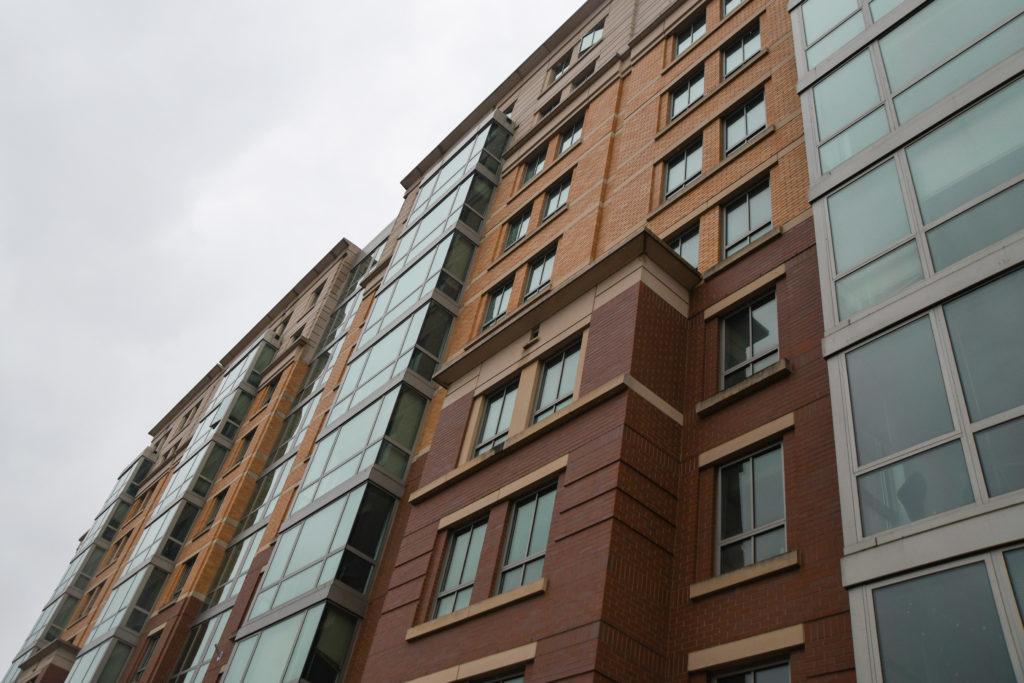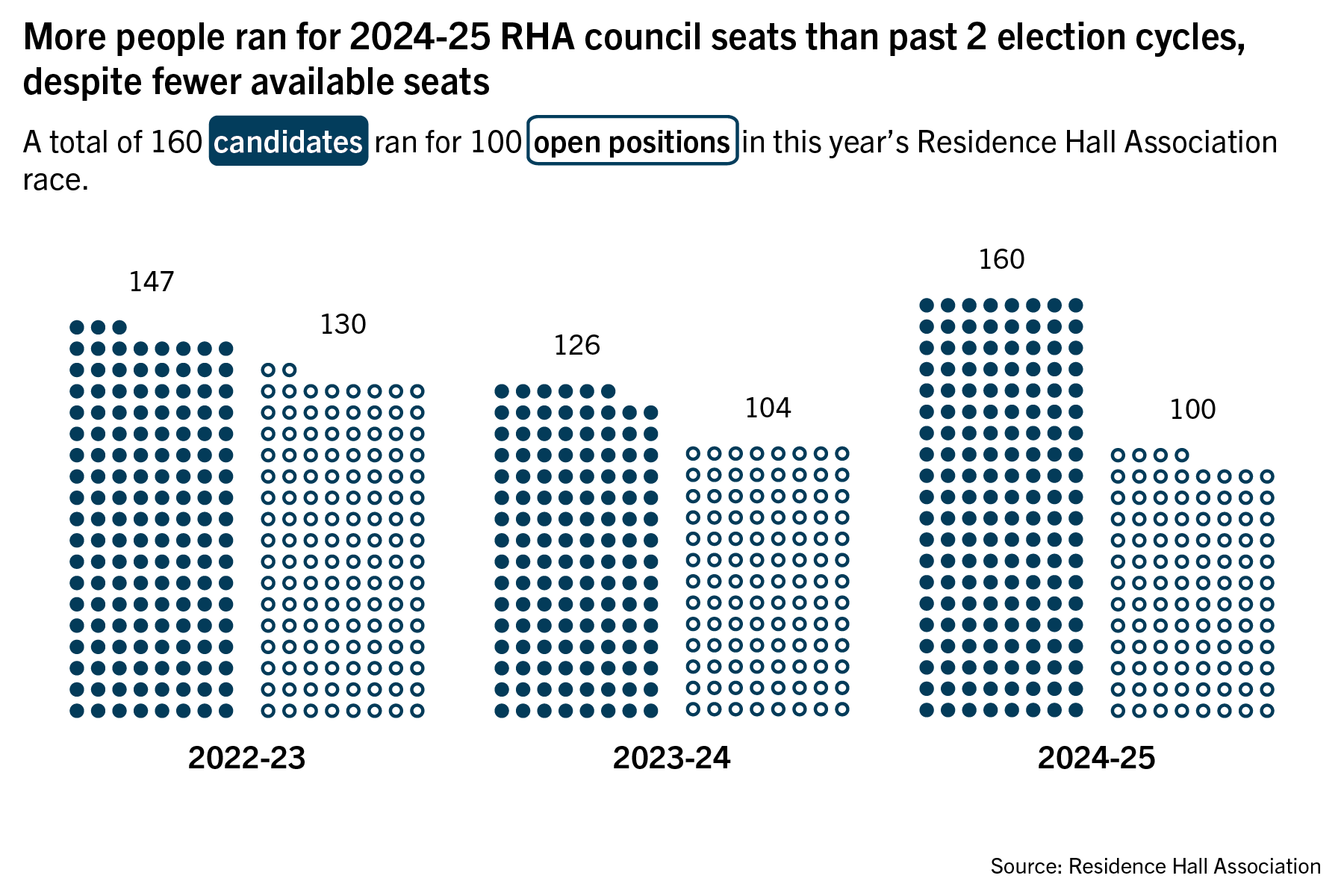
Hatchet File Photo
South Hall located on F Street.
The Residence Hall Association filled more than three-quarters of hall council seats during last week’s election, a nine percent jump from last year’s race, which RHA leaders attribute to increased outreach at the semester’s onset.
Starting last Monday at noon, 160 students competed to fill 100 hall council positions in the RHA’s annual races — about a 27 percent rise in candidates compared to 2023 — with students voting Thursday through Saturday on their picks for advocacy and programming leaders in the mini-government representing each of GW’s 25 residence halls. RHA President Andrew Levin said the association upped its outreach during the first few weeks of the semester by attending more than a dozen events, including tabling at first-year move-in and the Buff and Blue Kickoff, which he said likely contributed to the uptick in candidates.
“It’s definitely nice to see the enthusiasm from people running,” Levin said. “I can’t say anything for sure, but I’d like to think that all of the events that we have attended over the first couple weeks of school have made a difference.”
Students vied for president, communications chair, programming chair and finance chair positions in their respective residence halls. The RHA dropped the vice president role in 2023 to reduce redundancy and allow hall council members to take more active roles in the body’s decision-making processes.
Each elected leader will play a role in organizing community events and advocating for hall improvements like accessibility, facilities and safety, Levin said.
“We want people to not just put on events, even though that’s a lot of what we do and is extremely important, we also want to equally emphasize that advocacy perspective,” Levin said.
This election cycle, 24 seats across the residence halls weren’t filled, a drop from last year’s 34 vacancies.

Levin said he plans to offer vacant seats to residents who ran for a different position in their hall but lost because the positions’ responsibilities overlap. He said, for example, if a student running for president came in second but the finance chair position in their hall was still open, RHA leaders would offer the second-place presidential candidate the finance chair position. He said the method is effective in filling vacancies because these students have already shown interest in participating in RHA.
Levin added that hall councils will also work to appoint students to fill remaining vacancies after the positions are offered to everyone who vied for an RHA position. He said to fill a vacancy, the other council members would appoint a resident to fill the position and vote on the appointee.
“I think we’re going to be able to fill the whole hall councils,” Levin said.
RHA Director of Communications Jacob Wilner said he spoke with about 500 people to encourage them to join RHA in the first few weeks of school at University events like the Mount Vernon Campus pool party, with the goal of raising the number of students running for council positions. He said he told students within RHA they can hold events and advocate for their hall’s needs.
!function(){“use strict”;window.addEventListener(“message”,(function(a){if(void 0!==a.data[“datawrapper-height”]){var e=document.querySelectorAll(“iframe”);for(var t in a.data[“datawrapper-height”])for(var r=0;r